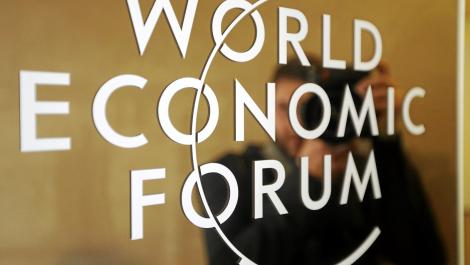
At the World Economic Forum (WEF) annual meeting next week in Davos, Switzerland, the World Business Council for Sustainable Development (WBCSD) will engage in several high-profile events to promote its new Action2020 initiative to the world’s top business leaders.
Running 22-25 January, the theme of this year’s WEF meeting is “The Reshaping of the World: Consequences for Society, Politics and Business”, aimed at challenging political and business leaders to think beyond short-term, crisis-driven decision making, and focus on addressing the underlining trends driving global transformation. This forward-looking, solutions-oriented focus is very much in line with the WBCSD’s Action2020 initiative. Action2020 is a science-based action plan that seeks to engage companies across the globe to implement innovative and scalable business solutions and improve the business case for sustainability.
“Action2020 is unique because it is the biggest concerted corporate sustainability action plan to date. A growing list of member companies have already signed up to it, representing 15 million employees and $7 trillion of revenues,” says WBCSD President Peter Bakker.
The Action2020 plan identifies nine societal “must-have” targets that need to be met by 2020 to achieve the long-term vision of a world in which nine billion people live well and within the resource limits of the planet by 2050. The plan also lays out an initial set of innovative business solutions designed to help companies collectively move the needle on global sustainable development.
Read more on the WBCSD’s Action2020 microsite
Watch the WBCSD’s latest video on Action2020
WBCSD at the Davos Climate Change Day
During the Climate Change Day in Davos on Friday, 24 January in the World Food Programme tent, the WBCSD will highlight Action2020’s societal targets and business solutions aimed at addressing the world’s most urgent climate change challenges. These solutions include: leveraging forests as carbon sinks;carbon capture and storage; electrifying cities towards zero emissions; low-carbon electrification of remote locations; and building resilience to climate change in globally interdependent business. Action2020 is also developing solutions to bring more renewables to the energy mix.
The recent UN climate change talks in Warsaw in November revealed a lack of political will at the international level to tackle the clear and present urgencies that climate change is posing in all corners of the planet. Action2020’s climate change targets and solutions present global business with the opportunity to play a leading role in addressing our biggest environmental challenges, including agreeing on a new international climate change agreement at the UN climate change talks in Paris in 2015.
“Business leadership in addressing climate change can only be meaningful with the backing of smart international and national government policies,” says Peter Bakker. “Business can show what we can do but the scale needed will require high-level political will and a redirection of financial capital.”
Download the WBCSD’s COP19 publication on Action2020 climate change business solutions
Read more on the Climate Change events at the WEF annual meeting in Davos
WBCSD and Water.org focus on water security & access to safe water and sanitation
At a high-profile breakfast session on Friday, 24 January, the WBCSD will collaborate with Water.org to explore scalable solutions to water security and ways to ensure that the human right to water and sanitation remains a global priority. Participants will include Water.org co-founders Matt Damon and Gary White, PepsiCo CEO Indra Nooyi, Nestlé Chairman Peter Brabeck-Letmathe,along with WBCSD’s COO Peter White and other business leaders.
Water is a key priority area of the WBCSD’s Action2020 initiative. The increasing and competing demands for water use - from agriculture, households, energy generation, industry, ecosystems - create new risks to businesses, governments, communities and the environment. These risks are broad-ranging, from conflicts, natural disaster and food security to financial, reputational, regulatory and operational. With global demand projected to exceed sustainable supply by 40% in 2030, Action2020 aims to develop new models of cooperation needed to address water security challenges but most importantly, ensure universal access to safe drinking water and sanitation for billions of people that live daily without it. Lack of potable water and sanitation represents the largest global health crisis in the world and the cost to global productivity and economic advancement for billions cannot be underestimated.
Read more on the WBCSD’s work on water
Other WBCSD events in Davos
The WBCSD will also participate in several sessions throughout the WEF annual meeting, to showcase how the Action2020 plan ties into a range of global topics, including making extractive industries more sustainable, securing tomorrow’s water supplies, catalyzing green investments, and corporate leadership on cities and climate change.
For a recap on all the nuts and bolts of the Action2020 plan, visit our microsite: www.action2020.org, and watch our Action2020 videos on the WBCSD’s YouTube channel.
Follow WBCSD news from Davos on the Action2020 microsite, as well as on Twitter:
@wbcsd, @MPB_WBCSD; #WEF14, #action2020
- CBCSD and Members Participated and Suggested on the Project for Technical Regulation on Low-carbon Pilot Community
- CBCSD and Members Participated in the APEC Cooperation Network Construction Forum of Green Supply Chain
- Calculation Method of CO2 Emissions in Petroleum and Natural Gas Exploitation Enterprises & Calculation Method of CO2 Emissions in Water Network of Chemical Enterprises
- CBCSD Attended the Workshop for Environmental Protection and Sustainable Development and Delivered Introductions
- WBCSD: Tackling the Challenge, How to Make Informed Choices on Forest Product?
- The National New-Type Urbanization Plan Released, Board Members of CBCSD Help the Sustainable Development of Cities
- Board members of CBCSD Actively Participated in the Carbon Trading and International Climate Change Process
- Two industrial Standards Compiled by CBCSD Passed Examination
- Widespread Use of the Achievements Businesses Energy Saving and Greenhouse Gas Management
- CBCSD held Chemical industry enterprise value chain (range 3) greenhouse gas emissions, accounting and reporting guidelines


